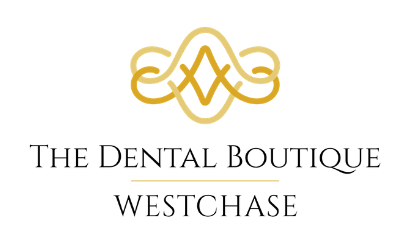Imagine standing at the gates of a grand fortress, determined to keep invaders out. In the world of oral health, your teeth serve as the castle walls, and tooth decay is the adversary looking for any chance to sneak in. By creating a solid defense, you can help prevent the onset of cavities and keep your smile strong. Understanding the threats posed by decay, practicing consistent oral hygiene habits, and seeking the right professional support are key ways to fortify your dental “castle.” Below, you will find a detailed look at what cavities are, tips for preventing cavities at home, and the best strategies to identify potential problems before they worsen.
Understanding Tooth Decay and Cavities
Cavities develop when harmful bacteria produce acids that gradually wear away at the hard surface of your tooth—known as enamel. Over time, these small holes or “pits” can expand and become more painful if not treated. Although tooth enamel is the toughest substance in the human body, it is not invincible. Without proper care, cavities can form and lead to serious complications such as infections or tooth loss.
In the early stages, you might notice a slight sensitivity to hot or cold foods. The idea of wondering “what do cavities look like?” is common; they often appear as small white, brown, or even black spots on the surface of a tooth. When left unchecked, these spots can grow, resulting in pain and discomfort. According to professional material from the American Dental Association (ADA), cavities remain one of the most prevalent health issues, but they are largely preventable with proper oral care.
Everyday Tips for Preventing Cavities at Home
Developing strong routines is often the best way to protect your teeth. By following a few practical steps each day, you can significantly decrease the likelihood of cavities forming in the first place. Below are some tips for preventing cavities at home:
- Brush Twice a Day: This step might sound obvious, yet its importance cannot be overstated. Choose a fluoride toothpaste and brush for two minutes, ensuring you reach every surface of your teeth. Fluoride is vital because it helps strengthen enamel, making teeth more resistant to acid attacks.
- Floss Regularly: Flossing removes food particles and plaque from places a toothbrush can’t reach, such as between teeth and beneath the gum line. When plaque is left to accumulate, it fosters harmful bacteria that can lead to decay.
- Rinse with Mouthwash: Antibacterial mouthwash can eliminate additional bacteria in your mouth. Look for products with fluoride or antimicrobial ingredients to maximize protection.
- Limit Sugary and Acidic Foods: Sweet and acidic substances, such as candy, soda, or fruit juice, give bacteria the fuel they need to produce acids. Cutting down on these items helps maintain a healthier oral environment.
- Stay Hydrated with Water: Drinking water helps cleanse your mouth of lingering food debris. Plus, many municipal water supplies contain fluoride, which further fortifies your teeth.
By focusing on these everyday habits, you create a consistent defense system against tooth decay. While these strategies are excellent first steps, nothing replaces the benefits of a professional evaluation to ensure more advanced interventions are not needed.
Identifying Early Signs: How Do I Know if I Have Cavities?
It can be difficult to answer, “how do I know if I have cavities?” until you experience noticeable discomfort. However, early detection makes treatment far simpler and less invasive. Start by paying close attention to any changes in how your teeth look and feel:
- Visual Clues: Small, discolored spots on a tooth—often white, brown, or black—may indicate early cavities. Wondering “what do cavities look like?” is normal, and it’s important to recognize that they may be subtle. If you notice any unusual markings, consult a dental professional.
- Sensitivity: Ongoing sensitivity to hot, cold, or sweet foods can be a red flag. While minor sensitivity doesn’t always mean a cavity is present, it is worth investigating if the issue persists.
- Pain or Discomfort: Cavities in more advanced stages often cause toothaches that range from mild to severe. If pain doesn’t subside, it is a strong sign to schedule a checkup.
- Visible Holes or Pits: In some cases, cavities become larger holes that can be felt when running a tongue across the tooth’s surface. If you suspect a pit in your tooth, it’s time to seek professional advice.
Addressing these early signs promptly helps prevent tooth decay from advancing further. A visit to an experienced dentist can confirm if a cavity exists and provide the necessary solutions—like fillings or crowns—to restore your tooth.
The Benefits of Professional Care and Expert Advice
Even the best at-home habits benefit from the occasional professional touch. According to professional guidelines published by the American Dental Association, scheduling regular dental exams and cleanings is vital in addressing early signs of tooth decay and other oral health concerns. Here are some of the benefits of trusting a dental expert:
- Comprehensive Evaluation: A professional can assess all areas of your mouth, including hard-to-reach spaces where cavities often hide. This thorough inspection prevents minor issues from becoming more serious.
- Professional Cleanings: Removing plaque and tartar buildup is essential for preventing cavities. Hygienists use specialized tools that achieve a deeper clean than daily brushing and flossing can provide on their own.
- Personalized Advice: Everyone’s mouth is different. A dentist can recommend specialized oral care products and techniques suited to your unique situation. This guidance often leads to faster improvements and better overall oral health.
- Restorative Treatments: If a cavity is found, addressing it promptly can save you from more extensive treatments. Fillings, crowns, and other restorative options provide reliable fixes, preventing further decay and protecting your tooth.
Regular dental checkups also open the door for discussions on new techniques and products that might simplify your day-to-day hygiene routine. For personalized support, The Dental Boutique Westchase—located at 10909 W Linebaugh Ave #100, Tampa, FL 33626—can help guide you in the right direction. Their dedicated team, led by Dr. Vallo, offers expert insight to keep your teeth healthy. To explore their services, call 813-536-7766 for more information.
Strengthening Your Smile One Step at a Time
Preventing tooth decay is much like building a strong fortress—once you understand the threats and develop a systematic defense, you have a significantly better chance of keeping your smile secure. Recognizing the early signs of potential issues, figuring out “how do I know if I have cavities,” and learning “what do cavities look like” can be powerful steps toward preserving your oral health. Consistent brushing, flossing, and routine dental visits remain among the most effective tips for preventing cavities. Professional expertise ensures no stone is left unturned in your defense strategy.
By taking these proactive steps and benefiting from professional care, you position yourself for improved oral well-being and reduced risks. Should you have any concerns or simply want further guidance, consider reaching out to a trusted dental practice. When questions arise, do not hesitate to seek out the expertise of a qualified professional for proper evaluations and treatments. A single phone call can lead to a stronger, healthier smile—your best shield against future invasions by tooth decay. Remember, the journey to a cavity-free life begins with sound preventive measures and concludes with the reassurance of expert support whenever you need it.
Share This Post


